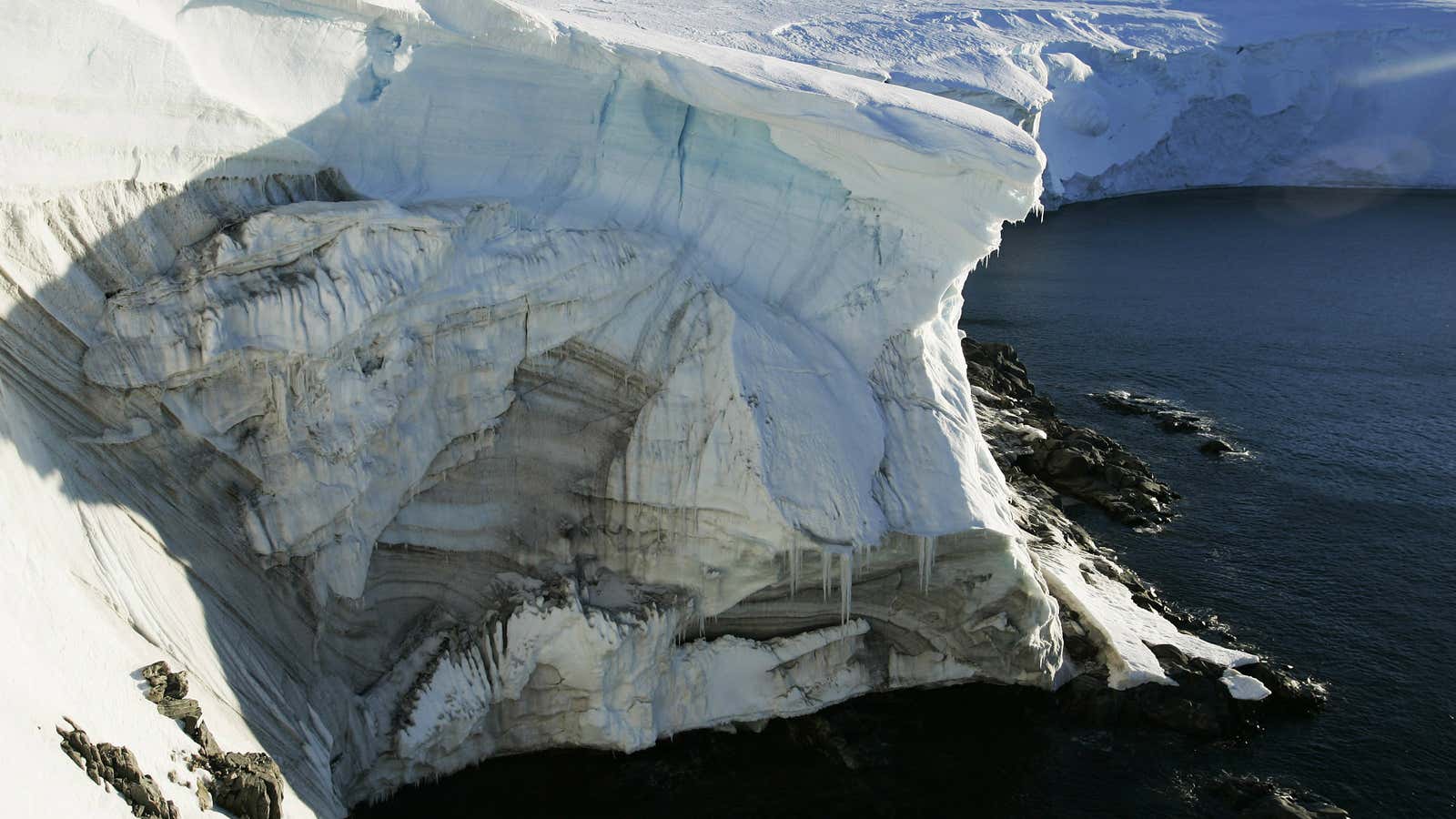Scientists are pretty much in agreement that sea levels are set to rise. But by how much is a far more complicated matter.
In 2013, the Intergovernmental Panel on Climate Change (IPCC) predicted that if greenhouse emissions continue to grow, sea levels could rise by 98 cm (39 inches) by 2100 (pdf). There are three main causes for this rise: glaciers melting, increased ocean expansion, and melting Greenland ice sheets.
Now, a new study (pdf) suggests another important driver of sea levels rising that the IPCC estimates may have underestimated: Antarctica.
The IPCC had previously assumed that increasing snowfall would offset Antarctica’s melting ice caps. But researchers are warning that Antarctica’s ice cap could be far less stable than previously thought, and its contribution could blow IPCC’s estimates out of the water—so to speak.
Researchers behind the study, published Nature, used a new computer model that does factor in Antarctica’s collapsing ice sheets. The results suggest that global sea-level rise could be double IPCC’s estimates—sea levels could rise to two meters (more than six feet) by 2100.
Researchers note in the study that Antarctica alone “has the potential to contribute more than a meter of sea-level rise by 2100 and more than 15 meters by 2500.”
For their model, researchers arrived at the estimates by focusing on the impact of the break-up of floating ice shelves and the effect of surface melt-water. These new forecasts would be particularly devastating for coastal communities—and the major cities based there.
Previous research has already warned that West Antarctica’s ice sheets have already begun to collapse. They suggest that west Antarctica and parts of the east Antarctic ice sheets could rapidly destabilize if warm ocean water melts its base. Another study had warned that the stability of the whole continent could be at risk by 2100.
When this could happen and to what extent, is still fiercely debated.
Just last year, another study dismissed some of the worst-case scenarios of Antarctica’s contribution to sea-level rises as unrealistic, and suggested Antarctica’s likely to contribute 10cm to global waters by 2100. And NASA in November 2015 reported that Antarctica is currently gaining more ice than it’s losing.
